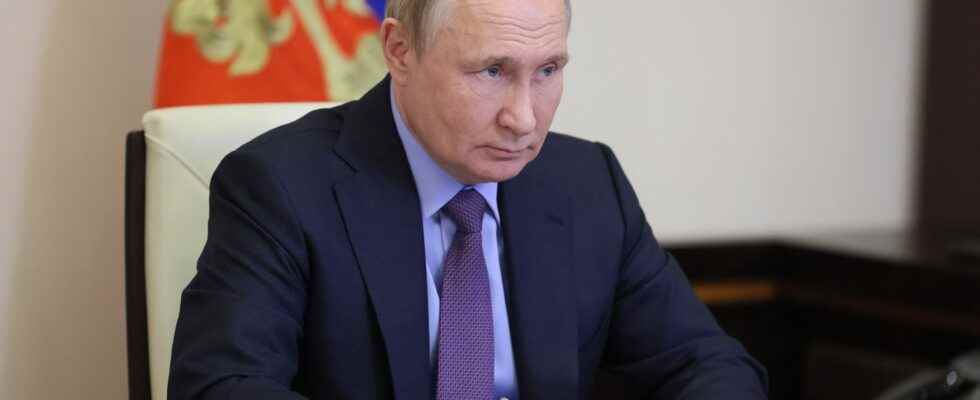It is 10:18 a.m. on February 10, 2023 when a Russian Kalibr-type cruise missile enters the airspace of the Republic of Moldova. The authorities of this small state of 2.6 million inhabitants, wedged between Romania and Ukraine, are on the alert. The projectile flies over Transnistria, this enclave located in the east of the country, administered for thirty years by pro-Russian separatists. Then crosses the border to Ukraine. This time, there will be no damage on Moldovan territory. A month earlier, the remains of a Russian rocket fell in a northern village, for the third time since the start of the war.
“Moldova is Ukraine’s most vulnerable neighbor and the most affected by the current conflict,” said Iulian Groza, director of the Institute for European Policies and Reforms, a think tank based in Chișinau, the capital. A collateral victim of the war, the country fears being the next target of the Kremlin, a furious spectator of its “slide” towards the West. Especially since Moldova obtained in June – like Ukraine – the status of candidate for the European Union. “The West has set its sights on the Republic of Moldova” to make it a new country opposed to Russia, like Ukraine, said Russian Foreign Minister Sergei Lavrov in substance.
Gas blackmail and misinformation
In rage, Moscow would have built a plan for a coup, according to President Maia Sandu. The pro-European leader detailed the scenarios on February 13: “The plan provides for actions involving military-trained saboteurs, disguised as civilians to carry out violent actions, attacks on state buildings and hostage-taking The purpose of these actions is to overthrow the constitutional order, to change the legitimate power of Chisinau into an illegitimate one, which would put our country at the disposal of Russia.”
The young republic – proclaimed in 1991, like Ukraine – has cause for concern: “Since this summer, Russia has multiplied hybrid attacks, summarizes Iulian Groza. Its most common weapons are gas blackmail, disinformation campaigns, cyberattacks on government sites, bogus bomb threats and bogus protests.” Anti-government marches are multiplying in the capital, on the initiative of personalities close to Moscow such as the oligarch and Israeli-Moldavian deputy Ilan Shor, head of the eponymous party “Shor”.
Married to Russian pop star Sara Lvovna Shor, this 30-year-old elected to Parliament (but exiled to Israel) is one of the protagonists of the “heist of the century”, in 2014, a gigantic case of embezzlement of money from banks Moldavians: 1 billion dollars had vanished… No less than 13% of annual GDP!
The man has been under US Treasury sanctions since October 2022 for interfering in the affairs of foreign governments for the benefit of Russia. According to washington post, who had access to Ukrainian intelligence documents, Ilan Shor, nicknamed “the young” by the Russian secret services, is “a figurehead of the Kremlin’s efforts to subvert” Moldova. His key argument for mobilizing the crowds? Rising prices. “Inflation peaked at 35% in October, partly linked to the purchase of more expensive gas elsewhere than in Russia, on which Moldova was very dependent, specifies Florent Parmentier, teacher at Sciences Po. This outbreak contributes to discontent social.” The resignation of the Prime Minister, on February 10, is part of this context of economic crisis.
A lean army of 5,000 men
Is Moldova the next prey of the Russians? “The threat is real, but not necessarily imminent, considers Florent Parmentier. In a climate of political crisis, the authorities have an interest in exaggerating it a little to close ranks.” Maia Sandu also intends to obtain European financial and military support. A thousand Russian soldiers have been stationed in Transnistria since the fall of the USSR.
For now, the Pentagon sees “no indication” of a Russian attack. But with its lean army of 5,000 men and its forty-year-old equipment, Chisinau knows it is vulnerable. On a visit to Paris this fall, the Moldovan Minister of Defense would have slipped to his counterpart: “I don’t have an army, I have a military museum”. In 2022, the government doubled its defense budget. It will take a lot more to protect him from the claws of the Russian bear, if the worst happens.
